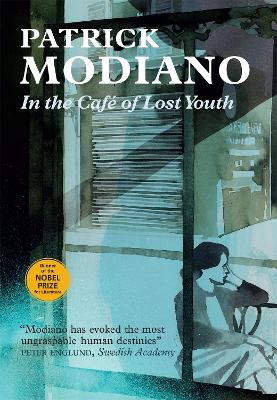Reviewed by Michael @ Knowledge Lost on
In the Café of Lost Youth is a wonderful character portrayal, exploring someone that has had a hard life but appears to have it together. However, this novel explores the idea of loneliness while also looking at that perception we put to others. I think Patrick Modiano has this unique ability to capture the feeling of loneliness, especially while surrounded by people. The aggrieved husband, a private investigator hired by said husband and a student in a café all show different sides of this woman and piecing it all together allows you to see the complete picture (or is it?).
I said this in my review of Missing Person as well, Patrick Madiano won the Nobel Prize in Literature in 2014. The committee awarded him this prestigious prize “for the art of memory with which he has evoked the most ungraspable of human destinies”. This is also used as a blurb (or a stripped-down version of this quote) for this novel, and with good reason. The way that In the Café of Lost Youth explores the idea of memory is what drew me to Missing Person as well and one of the reasons Modiano is worth exploring.
One major concern I have about reading In the Café of Lost Youth so close to Missing Person is the fact that they do draw on similar themes. While the plot is very different it still felt the same. I am not saying I did not enjoy In the Café of Lost Youth, rather that I will need to allow some time to elapse before dipping into Modiano again. I still think he is an excellent writer and one worth exploring. The way he explores loneliness and memory are worth checking out.
This review originally appeared on my blog; http://www.knowledgelost.org/book-reviews/genre/contemporary/cafe-lost-youth-patrick-modiano/
Reading updates
- Started reading
- 30 December, 2016: Finished reading
- 30 December, 2016: Reviewed
